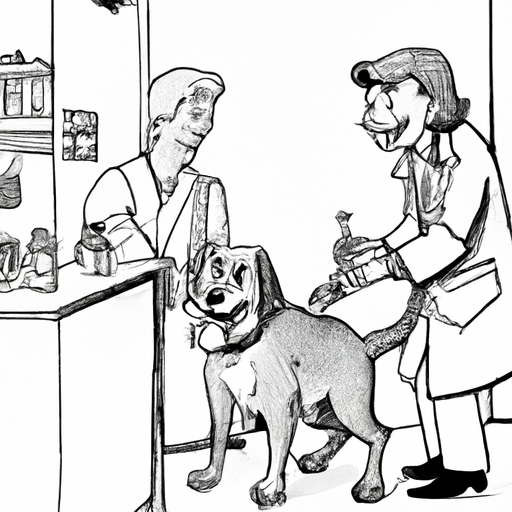As a caregiver, your four-legged friend’s health is undoubtedly your top priority. Vaccines play a crucial role in ensuring that your dog stays healthy and protected from various diseases. So, where do dogs get vaccines? This is a question that many dog owners ask, and this article will provide you with all the information you need.
1. Veterinarian’s Office
The most common place for your dog to get vaccinated is at your local veterinarian’s office. A licensed veterinarian is the most reliable and safest source for vaccinations.
- They have the appropriate training and experience to handle any adverse reactions that might occur.
- They can provide a comprehensive health check-up alongside the vaccination.
- They can give advice on the best vaccination schedule for your dog based on its age, breed, and overall health.
In addition to these benefits, veterinarians often keep a record of your dog’s vaccinations, which can be handy for future reference.
2. Animal Shelters
Animal shelters often provide vaccination services. This can be a cost-effective option if you’re on a budget.
- Many shelters will offer a package that includes spaying/neutering, a microchip, and necessary vaccinations.
| Services | Animal Shelter |
|---|---|
| Spaying/Neutering | Yes |
| Microchip | Yes |
| Vaccinations | Yes |
However, it’s essential to ensure that the shelter’s staff are qualified to administer vaccines and that they provide the necessary aftercare.
3. Pet Stores and Clinics
Some pet stores and pet supply chains host low-cost pet vaccination clinics. These clinics can provide an affordable and convenient alternative for caregivers.
- The clinics are often run by licensed veterinarians.
- They usually offer a range of vaccines at a reduced cost.
- Many also offer other preventative treatments, such as flea and tick treatments.
Though, it’s important to remember that these clinics are not a substitute for regular check-ups with your vet.
4. Mobile Vaccination Clinics
Mobile vaccination clinics are an emerging trend, offering the convenience of at-home service.
- These clinics come to your home, which can be less stressful for your dog.
- They provide a personalized service, often with more time for consultation and questions than you might get in a busy vet’s office.
5. Online Pharmacies
Online pharmacies are another source of vaccines for dogs. They can deliver the vaccines to your home, and you can administer them yourself.
- This option requires you to be comfortable with giving your dog a shot.
- It’s essential to ensure that the pharmacy is reputable and that the vaccines are stored and shipped correctly.
However, this should not replace a regular visit to the vet, and you should always consult with your vet before choosing this option.
FAQ’s
Q: How often do dogs need vaccines?
A: This varies depending on the type of vaccine and your dog’s overall health. Consult your vet for a personalized schedule.
Q: Are there risks to vaccinating my dog?
A: Vaccines are generally safe, but like any medical procedure, there can be risks. Discuss these with your vet.
Q: Can I vaccinate my dog myself?
A: While it’s possible to buy vaccines and administer them yourself, it’s not recommended unless you have the necessary knowledge and skills.
Q: Do indoor dogs need vaccines?
A: Yes, even indoor dogs are susceptible to diseases, so vaccinations are essential.
Remember, as a caregiver, your dog’s health is in your hands. Regular vaccinations are a key component of preventative healthcare for your dog, and knowing where to go can make the process smoother and less stressful.



